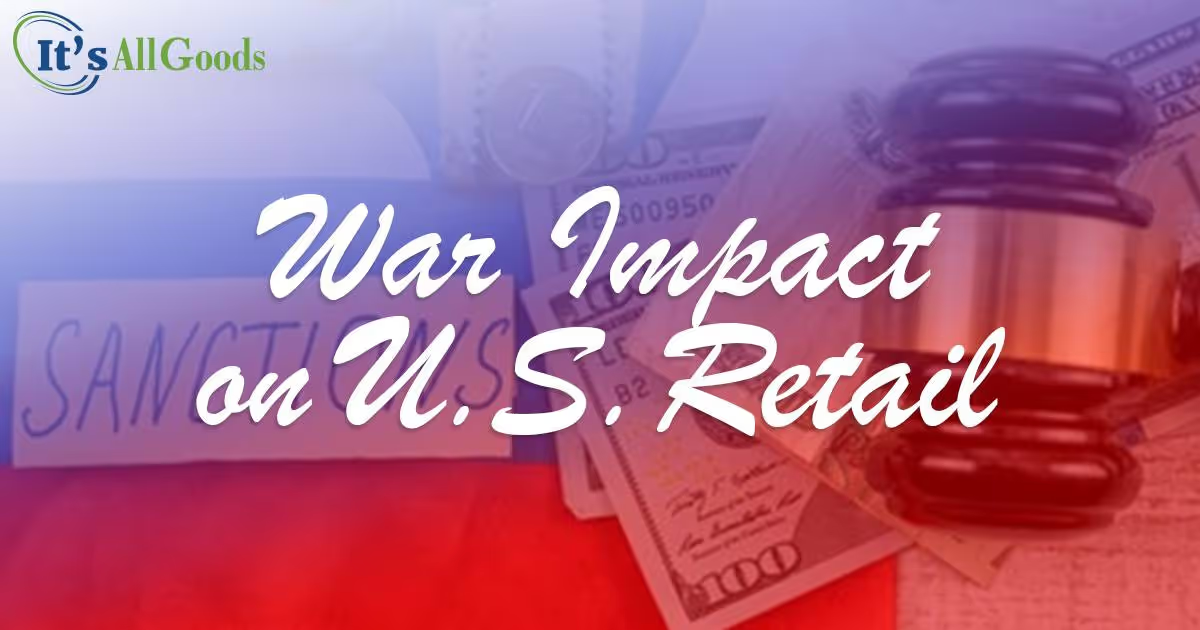

n the world of business, there are many different factors that can make or break certain industries at a global level. From shifts in popular culture and technological advancements, to major events such as the global pandemic or the global financial crisis, certain industries get impacted in various ways by the complexities of the business cycle.
Of the factors that have the potential to impact economies around the world, there is possibly nothing more consequential than the occurrence of war. While military spending reaches all-time highs, most industries actually suffer directly or indirectly as a result of war. Human, social, and financial capital all suffer. On top of the obvious environmental impacts, war results in major impacts to one form of enterprise in the United States – the retail industry.
The consequences of war can be almost instantaneous, with global economies suffering very early as demonstrated by the first few announcements of the Russian invasion of Ukraine. Within 12 days of Russia’s invasion of Ukraine, visible impacts on U.S. retail manifested on a major scale. This is partly due to multiple countries around the world responding to the crisis by imposing substantial sanctions on Russia. This takes aim at everything, from the economy and finance sectors, to shipping and technology.
Everywhere in the country, markets are responding to the Ukraine war, with hikes in global food prices and other retail products. Gas, in particular, has been exceedingly affected, with the price per gallon of both diesel and regular gasoline spiking to rarely seen heights. Add to this the disruption of logistics everywhere caused by the multiple sanctions towards Russia, which then requires retail businesses to alter shipment routes and inventory management.
With the conflict gaining even more widespread attention across the globe, brands and retailers have come under pressure to act. Many companies have stopped any and all shipments to Russia as well as refusing shipments from Russia.
Of the factors that have the potential to impact economies around the world, there is possibly nothing more consequential than the occurrence of war. While military spending reaches all-time highs, most industries actually suffer directly or indirectly as a result of war. Human, social, and financial capital all suffer. On top of the obvious environmental impacts, war results in major impacts to one form of enterprise in the United States – the retail industry.
Today, more and more retailers with global presences are pulling out their operations from Russia. Brands that suspended their operations in Russia showed significant decline in their sales. These companies include Apple, Microsoft, Nike, IKEA, H&M, and the like. IKEA halted operations both in Russia and Belarus, Amazon suspended their shipments of retail products to the country. Aside from obvious moral reasons for their exit, these retail giants are under constant pressure from their global markets, as they commonly fear mass boycotts of their products should they continue to operate in the invading country.
Additionally, global boycotts of Russian products such as vodka and, most notably, oil has increased prices in gas across the board here in the United States, rippling outwards to other industries that rely heavily on the use of these retail commodities. In the country, a lot of U.S. retail giants such as Kroger and Publix have taken Russian vodka off their shelves, and other companies have begun divesting their investments of Russian-based retailers.
Experts have said that the greatest risk facing global supply chains has shifted from the pandemic to the Russia-Ukraine military conflict and the geopolitical and economic uncertainties this has created. The most common Russian imports to the country are in the form of mineral fuel, precious metals, iron, steel, and fertilizer. With the recent economic sanctions implemented by President Biden towards Russian imports, there is currently a massive production concern towards potential economic imbalances with regards to the supply of oil and gas, as Russia represents a third of all energy imports to Europe.
Amidst the skyrocketing gas prices that have added to the highest U.S. inflation in 40 years, the duration of the conflict that cause the most impact to the average U.S. consumer. The longer this conflict goes on, the more problematic it can become, as more and more consumers spend time getting absorbed with the situation. This was also observed with the global pandemic. Where as time went on with situations worsening all over the world, countless consumers began getting more involved and started changing their spending habits that led to declines in U.S. retail markets.
At the end of the day, the repercussions of the Ukraine-Russia crisis will only get worse as the war goes on. Now, the world holds its breath and waits for President Putin’s next move with regards to his invasion, as each day that passes by means even more consequences for the U.S. retail markets.